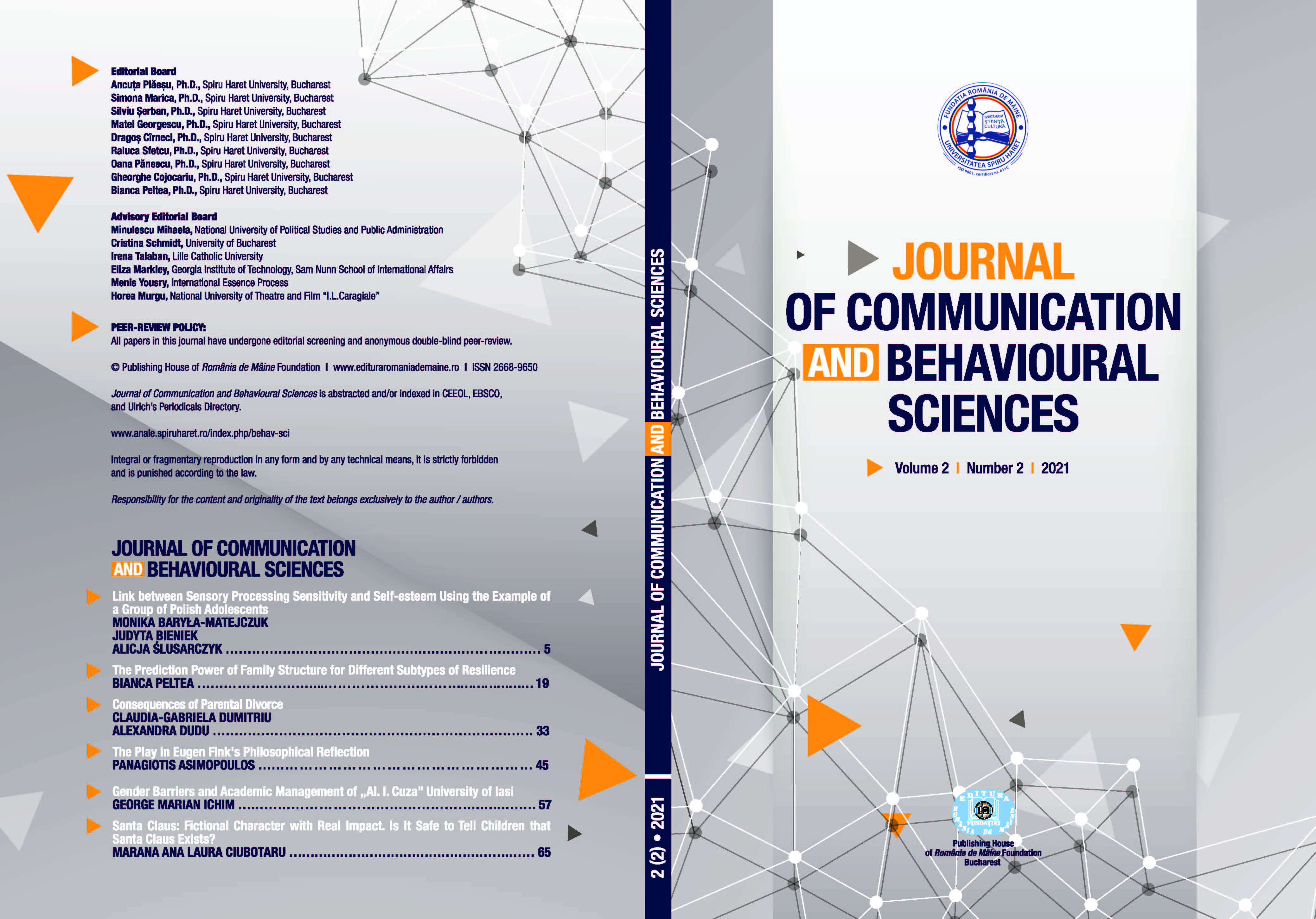THE PLAY IN EUGEN FINK’S PHILOSOPHICAL REFLECTION
THE PLAY IN EUGEN FINK’S PHILOSOPHICAL REFLECTION
Author(s): Panagiotis AsimopoulosSubject(s): Aesthetics, Drama
Published by: Editura Fundaţiei România de Mâine
Keywords: Philosophy; Fink; play;
Summary/Abstract: The truly harsh, yet highly impressive, coincidental identity of the carefree play with the tender childhood is an attractive springboard for fertile thoughts. With admirable engrossment prominent scholars diachronically deal with the nuanced access of that complicated experiential process. Tirelessly they aim at the thorough tracing of its identity. Adopting traditional practices or groundbreaking consideration they tend to convincingly interpret the fundamental parameters concerning the polyhedral function of “play”. Deterministically they are led to crucial drawing of undeniable findings that substantially differ from the primary aspect. In particular, they emphasize the catalytic presence of play in psychosomatic activities and spiritual manifestations, without exception of all living beings, not only of the rational creatures (underage or adults). They also highlight the pure theatrical shade and the unparalleled ritualistic character of the cultural phenomenon; they underline the explosive externalization of the authentic pleasure through which each individual consciously or imperceptibly channel his mimetic dynamics while clearly defining the inviolable framework of his dominance by pointing to his personal value. At the same time, they focus on the essential components of the play: the complete exemption from compulsive rigidities is consistent with the creative freedom of the teammates and their unchangeable availability for self-promotion despite the spatial and temporal limitations of its commission; the ideal interaction between the unwavering attachment to the realistically binding, the consciously accepted rules and the temporary, autonomous transition to conceivable dimensions; its noble harmony based on the supreme secular order and the absolute mystic beauty as well. Starting from the famous saying of “dark” philosopher Heraclitus that “eternity is a child playing draughts, the kingly power is a child’s” (fragment B 52) Eugen Fink bypasses metaphysical speculations, mythological rituals, but also religious doctrines. Through the perfect combination of his transparent argumentation with the ancient Greek anthropological palimpsest, he makes a detailed examination of the philosophical essence of the play. He reasonably gives it existential importance, as he perceives it as a top result of excellent aesthetic education.
Journal: Journal of Communication and Behavioural Sciences
- Issue Year: 2/2021
- Issue No: 2
- Page Range: 45-55
- Page Count: 11
- Language: English
- Content File-PDF

